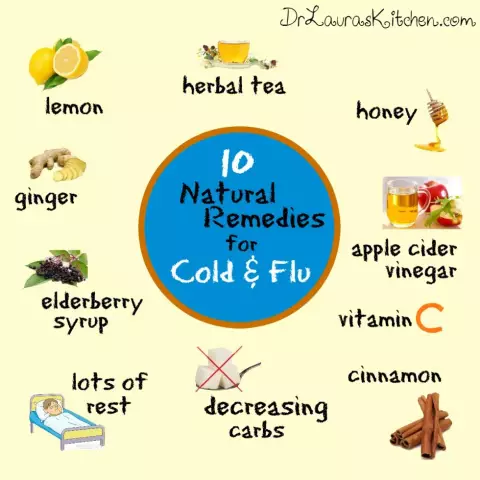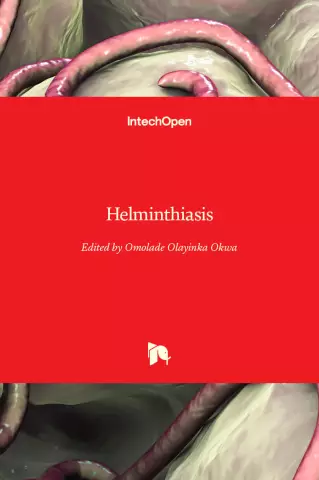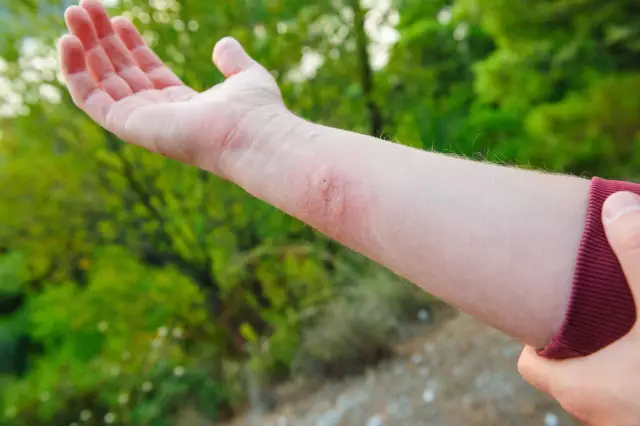- Author Rachel Wainwright wainwright@abchealthonline.com.
- Public 2023-12-15 07:39.
- Last modified 2025-11-02 20:14.
Top 10 popular remedies that won't help with the flu
A new flu epidemic leads to another wave of panic. We are being manipulated from year to year. The professionally disturbed voice of an announcer on the news, reports with death tolls from illness, interviews with people in white coats and advertisements for influenza drugs of varying degrees of effectiveness - all this reminds Hollywood films about epidemics that threaten to destroy our planet. However, there is another similarity to cinema: a happy ending.
How to deal with what is happening, not to panic and not become a gullible buyer of everything that enterprising "health sellers" are trying to impose on us? And what drugs are not able to help with the flu, but are constantly presented to us as effective remedies? Looking ahead, we will say that among them there are both the bestsellers of the pharmaceutical industry, and folk remedies "tested for centuries".
Arbidol and other "immunity stimulants"
Immunity is the body's defenses. The stronger the immunity, the more resistant the body is to infectious effects. Currently, a whole arsenal of drugs is proposed that supposedly enhance immunity. They are positioned as effective protection against seasonal infections, including influenza. The truth is that immunity does play a key role in the fight against influenza. However, it cannot be increased by drinking fashionable immunostimulants. All these drugs, including the sensational Arbidol, have unproven efficacy, that is, there is no reason to believe that they have any effect at all. But experts believe that this is for the best, because drugs that actually affect the immune system are extremely powerful. They are used with great care only in severe diseases (for example, oncology),as they have serious side effects.
Meanwhile, it is quite possible to strengthen the immune system, for which pills are not needed at all. It is necessary to lead a healthy lifestyle, eat right, get enough sleep. Hardening helps well. But you need to do all this in advance, and not when the disease began.

Source: depositphotos.com
Multivitamins
Taking vitamins is able to eliminate only one (albeit very important) problem - hypovitaminosis, or vitamin deficiency, and only if too little of them is supplied with food. Fashionable vitamin complexes do not treat influenza or other viral diseases and cannot cure. Doctors make an exception only for one single vitamin - vitamin C, which helps to strengthen the walls of blood vessels, while the influenza virus affects them negatively. However, you do not need to be zealous with taking it: you should drink it carefully, as prescribed by a doctor and in the absence of contraindications.

Source: depositphotos.com
Antibiotics
Antibacterial drugs (antibiotics) do not affect the flu virus or viruses in general. Taking them with a viral disease is not only useless, but also harmful, since taking them somewhat weakens the immune system, and, as we recall, it is the immune system that fights viruses.

Source: depositphotos.com
Aspirin
Aspirin should not be taken in case of influenza, since its effect in combination with the virus often leads to severe brain and liver damage. This can be deadly for children!
As an antipyretic for influenza and other acute respiratory viral infections, preparations based on paracetamol and ibuprofen, which do not produce a similar effect, are suitable.

Source: depositphotos.com
Mustard plasters
For a long time it was believed that mustard plasters stimulate superficial nerve endings and improve blood circulation in the superficial capillaries, thereby activating the body's defenses. In fact, all they can do is warm up the skin. In some pathologies, this can be useful, but in the case of a respiratory viral infection, it is completely ineffective. As it turned out, such heating does not stimulate any protective forces, but causes a lot of unpleasant sensations. Mustard plasters in this case are nothing more than a distracting therapy, but is it worth distracting from some troubles with others?

Source: depositphotos.com
Hot foot baths
In terms of effectiveness, this ancient remedy is comparable to mustard plasters. Hot foot baths only warm you, no more and no less. But a blanket, warm clothes or a cup of hot tea may well cope with this task.

Source: depositphotos.com
Onion and garlic
Onions and garlic contain biologically active substances that can have an antibacterial effect, which has been confirmed by research. However, viruses are very different from bacteria, and antibacterial drugs do not affect viruses (see the section on antibiotics). Some researchers suggested the antiviral activity of onions and garlic, but they failed to prove this. The use of onions and garlic for the treatment of influenza in children, especially direct contact with the mucous membrane (for example, instilling juice or even inhaling the vapors of onions or garlic into the nose) is undesirable, as it can cause severe irritation, up to a burn.

Source: depositphotos.com
Goose, bear and badger fat
In folk medicine, the fat of some animals is attributed to healing properties. It can be goose, bear, badger fat - depending on the area and traditions. It is suggested to lubricate the chest with fat, which supposedly relieves inflammation of the respiratory tract. In fact, fat does not and cannot have any effect on the respiratory tract. Even if he had medicinal substances in his composition, they would not penetrate further the skin. We hope that this information will save the life of at least one badger, or maybe even a bear.

Source: depositphotos.com
Expectorants and Antitussives
Cough is a defense mechanism that removes inflammation products from the airways. To suppress a cough means trying to leave everything that the body is trying to get rid of inside.
Mucolytics, or expectorants, help to thin the phlegm, thereby making it easier to remove. At first glance, this is exactly what you need. However, such dilution leads to an increase in an already strong cough - of course, only if they work, since the effectiveness of many of them has not been proven. But it has been proven that the use of these drugs in the treatment of young children (up to two years old) led to the development of severe complications from the respiratory system, and therefore their use is prohibited in a number of countries (for example, in Italy and France) in pediatric practice and is not recommended for other age groups.
Doctors advise to achieve softening of the cough and accelerating the elimination of toxic substances from the respiratory tract by maintaining high humidity in the room, moisturizing the mucous membrane of the nasopharynx and drinking plenty of fluids.

Source: depositphotos.com
Homeopathy
Homeopathic medicines also belong to a group of medicines with unproven efficacy. Unlike many other drugs, attempts to confirm their effectiveness have been made repeatedly, but all have failed. The James Randi Foundation, which encourages the use of scientific methods of understanding the world, has established a prize of $ 1,000,000 for those who convincingly prove the effectiveness of homeopathic remedies, and this award is still waiting for its winner. Some people, including doctors, believe that homeopathy works because faith, as you know, needs no proof. But even if we recognize that homeopathic remedies can cure diseases, it should be remembered that one of the principles of action of such drugs, proclaimed by homeopaths themselves, is action through aggravation. How reasonable it is to provoke an exacerbation in an acute illness, when the immune system is already under heavy load, is a question that anyone who tries to treat the flu with homeopathy should ask themselves.

Source: depositphotos.com
YouTube video related to the article:

Maria Kulkes Medical journalist About the author
Education: First Moscow State Medical University named after I. M. Sechenov, specialty "General Medicine".
Found a mistake in the text? Select it and press Ctrl + Enter.






